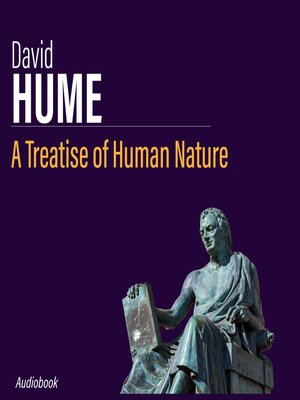
Sign up to save your library
With an OverDrive account, you can save your favorite libraries for at-a-glance information about availability. Find out more about OverDrive accounts.
Find this title in Libby, the library reading app by OverDrive.



Search for a digital library with this title
Title found at these libraries:
| Library Name | Distance |
|---|---|
| Loading... |
A Treatise of Human Nature is a philosophical work written by the Scottish philosopher David Hume and published in three volumes between 1739 and 1740. The book explores a wide range of philosophical topics, including metaphysics, epistemology, ethics, and aesthetics, and it is considered one of the most influential works in the history of philosophy.
Hume's central thesis is that all human knowledge is ultimately derived from sensory experience, and that there is no inherent connection between cause and effect. He argues that our beliefs about cause and effect are based on custom and habit, rather than any rational or logical foundation. This leads him to challenge many traditional metaphysical and religious beliefs, including the existence of God and the immortality of the soul.
Hume's skeptical approach to knowledge and causality is also applied to ethics and aesthetics. He argues that moral judgments and aesthetic preferences are not based on reason, but rather on subjective feelings and emotions. This leads him to reject the idea of objective moral and aesthetic standards, and to propose a theory of moral and aesthetic relativism.
Despite its controversial and radical views, A Treatise of Human Nature is widely regarded as a masterpiece of philosophical writing, and has had a profound influence on subsequent philosophical thought.







